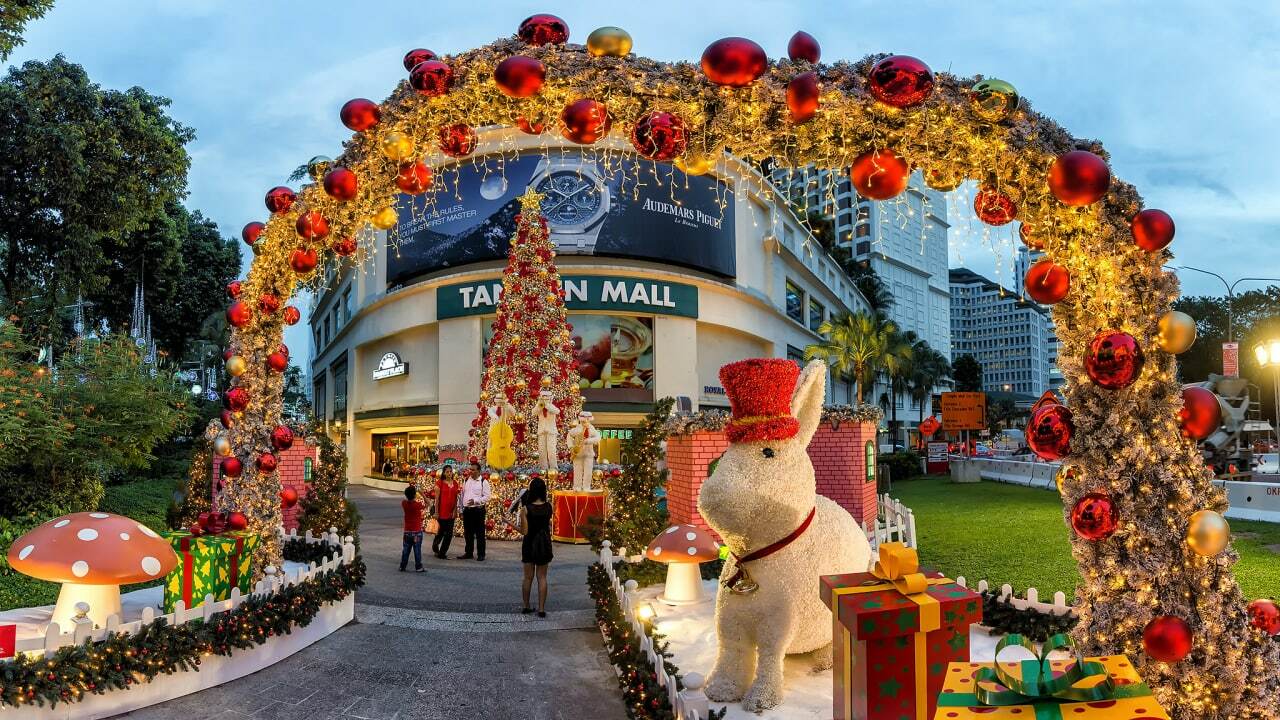Photo by Кофейный репорт Victor9V
Singapore Are the World’s Most Expensive Cities Right Now
Singapore has emerged as the joint-most expensive cities to live in, according to a new worldwide survey. Such data was published by the Economist Intelligence Unit (EIU), which annually assesses this indicator in large cities of the planet. The study aims to determine the cost of living in different cities around the world for employees of international companies.
The cost of living rose sharply this year, by an average of 8.1%, in all 172 cities studied by the analysts. The Russian capital topped the list of the world's cities, where the cost of living has risen significantly. Moscow climbed from 96th to 37th.
Source
S$160 million research centre launched to close gap between the biological and digital worlds
NTU today launched the Institute for Digital Molecular Analytics and Science (IDMxS), which aims to advance the science behind analysing biological molecules (biomolecules) through the use of information technology and data science.
IDMxS, NTU’s newest national Research Centre of Excellence (RCE) , is supported with a total investment of around S$160 million over 10 years, comprising S$94 million from the Singapore Ministry of Education. At the heart of the work done at IDMxS is digital molecular analytics, a new field of science that drills down to the level of a single molecule to detect, identify, and quantify biomolecules with unprecedented precision.
Source
AirAsia to commence Singapore-Sibu route on Dec 16 — Sarawak minister
AirAsia's Singapore-Sibu route is set to kick off on Dec 16 with a frequency of four flights per week, said Sarawak Tourism, Creative Industry and Performing Arts Minister Datuk Seri Abdul Karim Rahman Hamzah.
"We will also have the Singapore-Kuching and Singapore-Miri routes," he said after officiating at the Third Business Events Tribal Meet on Wednesday.
Abdul Karim said the flights for the Singapore-Kuching and Singapore-Miri routes will be operated by Scoot airlines.
Source
Novel 3D Printing Method To Fabricate Complex Metal-Plastic Composite Structures
Three-dimensional (3D) metal-plastic composite structures have widespread potential applicability in smart electronics, micro/nanosensing, internet-of-things (IoT) devices, and even quantum computing. Devices constructed using these structures have a higher degree of design freedom, and can have more complex features, complex geometry, and increasingly smaller sizes. But current methods to fabricate such parts are expensive and complicated.
Recently, a group of researchers from Japan and Singapore developed a new multimaterial digital light processing 3D printing (MM-DLP3DP) process to fabricate metal-plastic composite structures with arbitrarily complex shapes. Explaining the motivation behind the study, lead authors Professor Shinjiro Umezu, Mr. Kewei Song from Waseda University and Professor Hirotaka Sato from Nanyang Technological University, Singapore state, “Robots and IoT devices are evolving at a lightning pace. Thus, the technology to manufacture them must evolve as well. Although existing technology can manufacture 3D circuits, stacking flat circuits is still an active area of research. We wanted to address this issue to create highly functional devices to promote the progress and development of human society.” The study has been published in ACS Applied Materials & Interfaces.
Source
Livent and NTU Singapore partner to accelerate innovation in sustainable lithium battery technologies
Livent Corporation and Nanyang Technological University, Singapore (NTU Singapore) will be collaborating in research that will drive new advancements in sustainable lithium battery technologies.
The joint project will be led by Professor Madhavi Srinivasan, Executive Director of the Energy Research Institute at NTU (ERI@N) and Co-Director of NTU-Singapore CEA Alliance for Research in Circular Economy (SCARCE), a centre for excellence in innovative solutions for recycling and recovering valuable elements from e-waste.
Professor Srinivasan is a renowned academic whose research focuses on the circular economy. She had worked extensively on research initiatives with battery industry leaders and helps advise on public policies for energy and sustainability in Singapore and around the world.
Source
